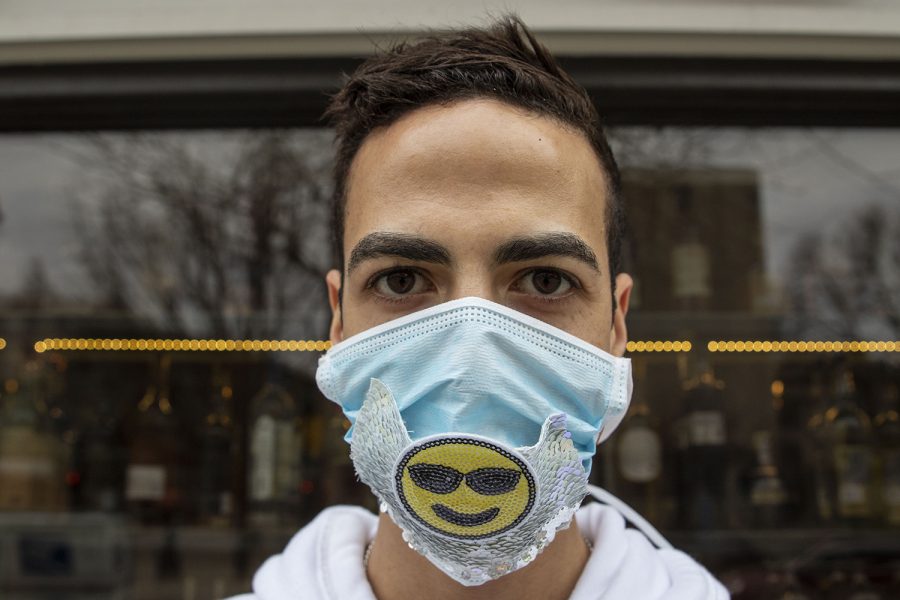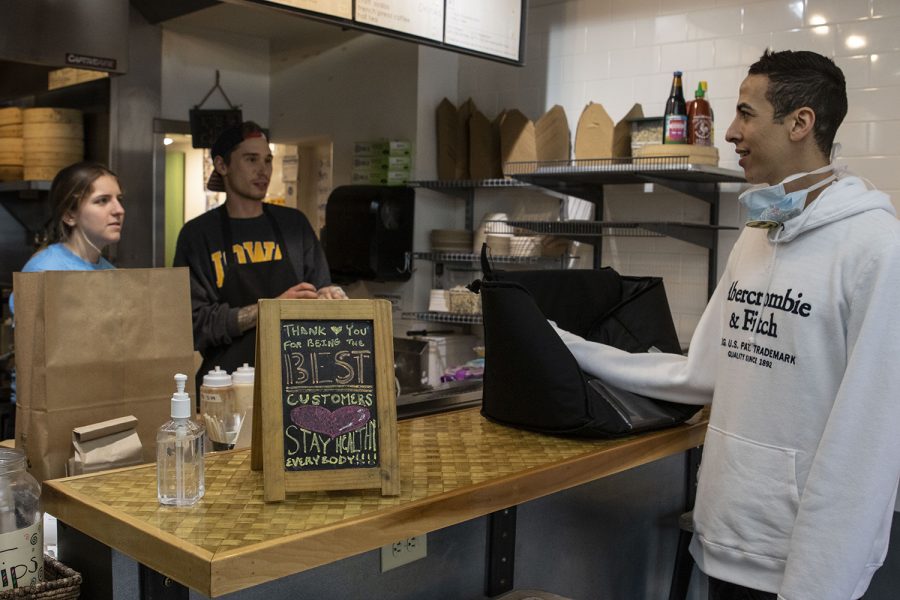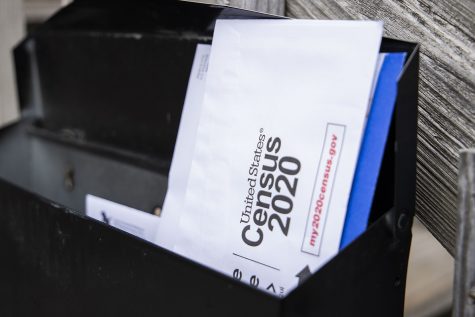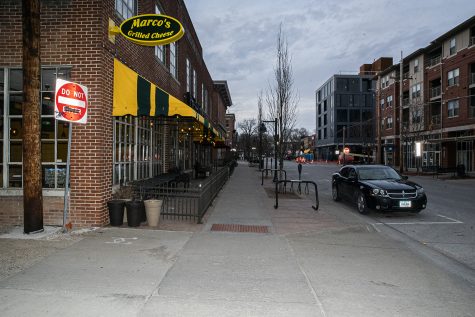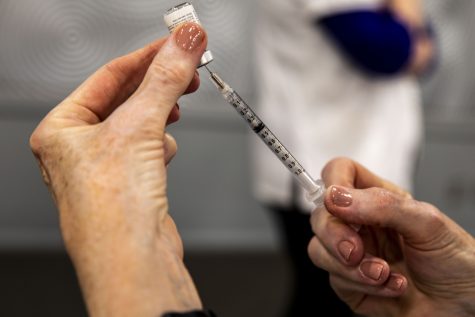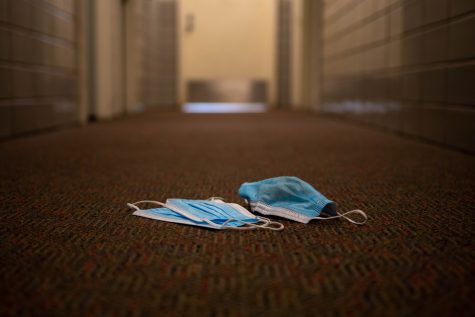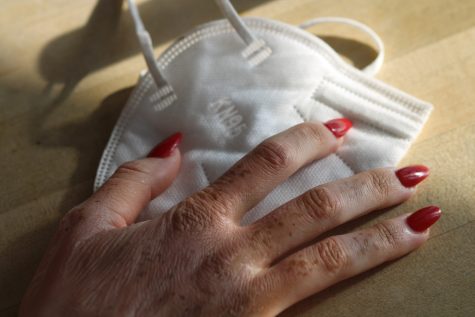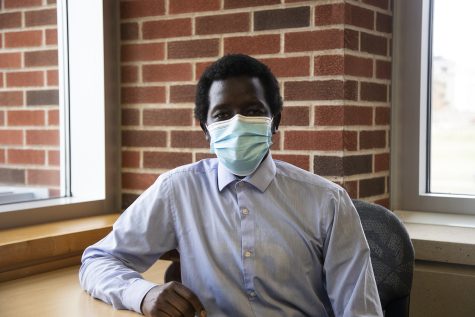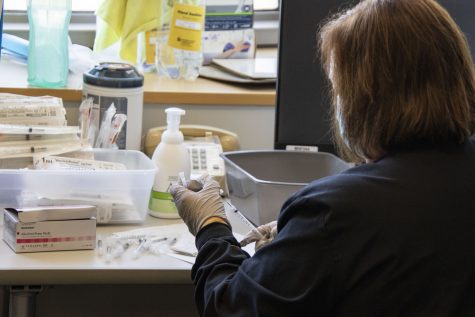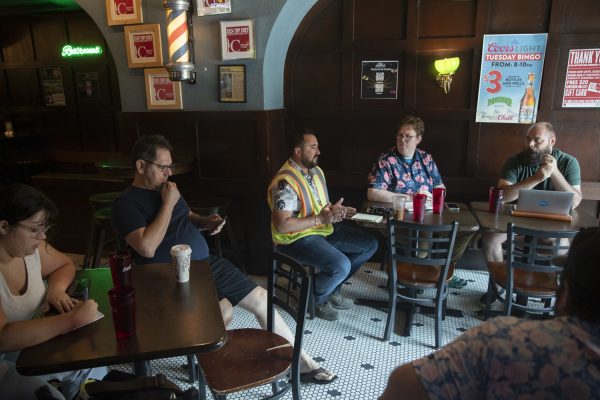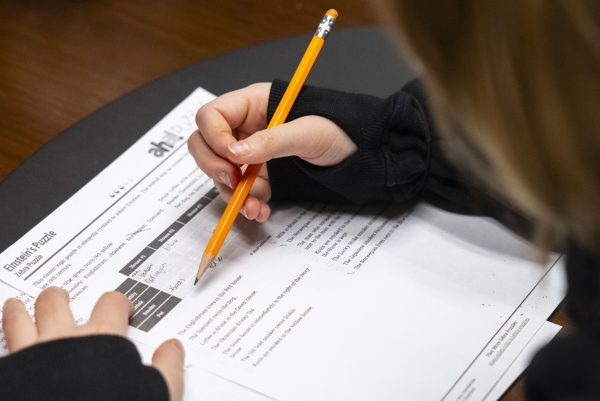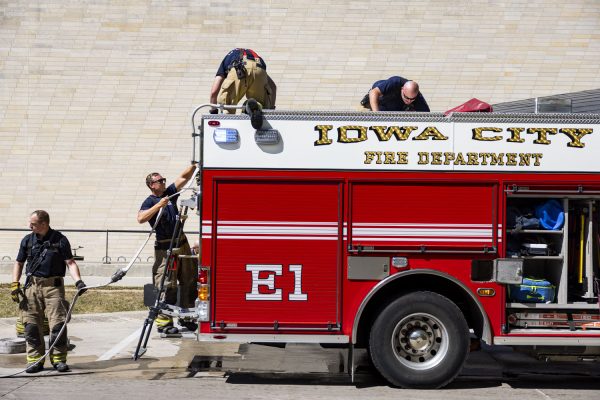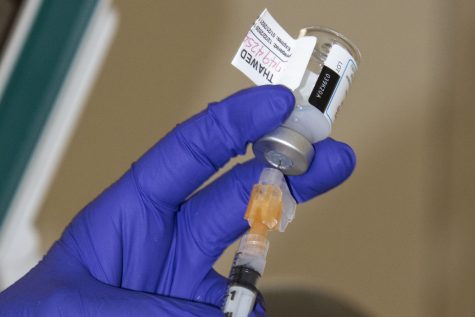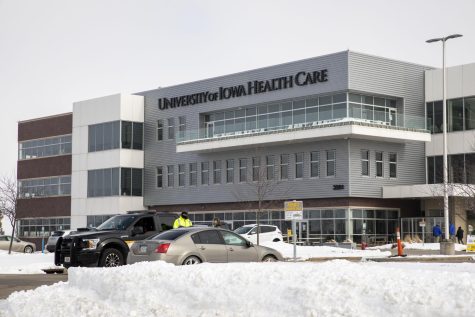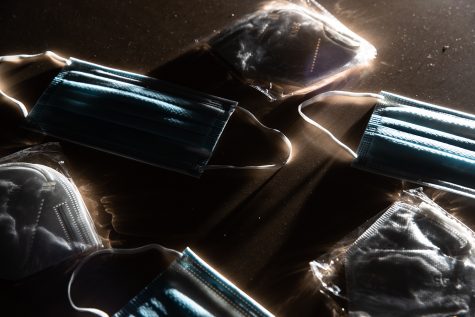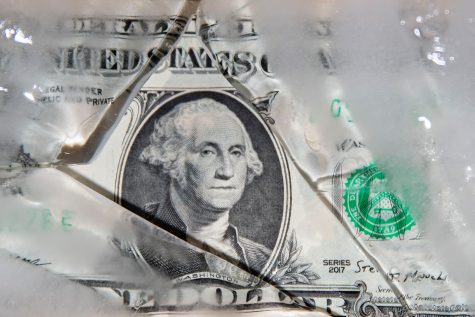Delivery drivers work on the front lines of COVID-19 pandemic
As COVID-19 forces businesses to close in-house seating, delivery drivers are now the bridge between local businesses and the customers they serve.
Jonathan Jackson poses for a portrait outside of St. Burch Tavern during a shift for Chomp on Thursday, March, 26, 2020. Jackson has delivered for Chomp for the past two years and reports seeing a spike in orders since COVID-19. Jackson has been leaving food on doorsteps, frequently wears a mask and sanitizes his hands.
Jonathan Jackson said there used to be lulls between lunch and dinner.
Now, the only time the Chomp delivery driver stops is when he’s waiting for an order.
“I have a feeling tonight’s going to be swamped,” he said as we zipped around the city in his black compact car.
The Daily Iowan went on a ride-along with Jackson to experience firsthand how delivery drivers and businesses are protecting themselves amid the spread of the novel coronavirus.
As businesses try to adapt to a world of no-contact selling, restaurants are relying more than ever on delivery to keep their doors open. On March 17, Iowa Gov. Kim Reynolds declared a public-health disaster emergency, requiring that restaurants only offer drive-thru, carryout, and delivery for customers.
Chomp, a delivery service that partners exclusively with local businesses, employs more than 100 drivers who are now on the front lines, helping to keep restaurants open. The Department of Homeland Security has labeled delivery drivers as essential workers, or personnel whose work is considered key to maintaining crucial operations and services, meaning they won’t lose their jobs during the pandemic.
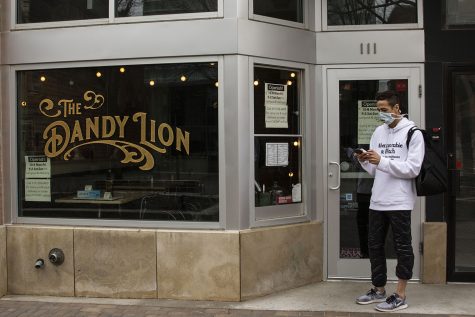
Jonathan Jackson stands outside of the closed Dandy Lion during a shift for Chomp on Thursday, March, 26, 2020. Jackson has delivered for Chomp for the past two years and reports seeing a spike in orders since COVID-19. Jackson has been leaving food on doorsteps, frequently wears a mask and sanitizes his hands.
Pop music blared through the speakers as we cruised from downtown to residential areas and back again with the windows down. Chiming bells would often interrupt the radio, alerting Jackson that a new order was in.
“I’m so busy that I can’t think about [COVID-19], so I don’t,” he said.
To a student, Iowa City can seem pretty small, but in Jackson’s car we could experience the full breadth of the town. Jackson, a University of Iowa senior majoring in art, has worked for Chomp almost since its founding more than two years ago. The 23-year-old said the amount of orders they are receiving is comparable to when the business first opened.
While this is good for his paycheck, Jackson said he’s sad that restaurants are losing so much revenue right now.
“It doesn’t make me feel good for them to see me and know I’m making a lot of money right now and they’re not,” he said.
Before COVID-19 forced The Bluebird Diner to close its seating area, the diner regularly had long waits for customers to be seated. Now, the business is split evenly between carryout and delivery. The restaurant has also reduced staff and hours.
“We’re just trying to keep the lights on so hopefully some of these people we’ve had to lay off have jobs to come back to when this passes,” Bluebird Diner co-owner Hart Epstein said.
Reynolds announced March 23 a plan that would provide state and federal support to local businesses through grants and delayed tax deadlines.
In order to keep employees, drivers, and customers safe, Epstein said Chomp has begun setting orders outside on a table to be picked up instead of letting people inside. All transactions are over the phone, and employees are wearing gloves and washing their hands in addition to other sanitation practices.
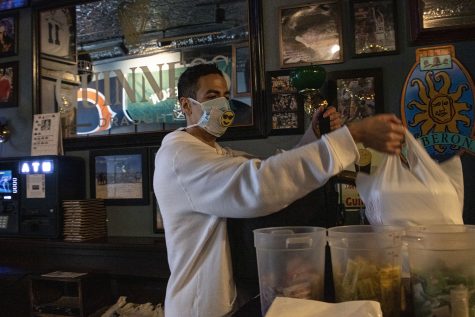
Jonathan Jackson picks up food from Micky’s Irish Pub during a shift for Chomp on Thursday, March, 26, 2020. Jackson has delivered for Chomp for the past two years and reports seeing a spike in orders since COVID-19. Jackson has been leaving food on doorsteps, frequently wears a mask and sanitizes his hands. (Katie Goodale/The Daily Iowan)
Before leaving the car, Jackson put on his mask, which was decorated with sequins and a smiley-face sticker. The sleeves of his white sweatshirt acted as makeshift gloves when Jackson went into a restaurant or knocked on a door. After every jaunt outside, he used one of the bottles of hand sanitizer he had stashed around his car, making the sanitizer’s sharp scent and the smell of mouthwatering food mingle in the small space.
Chomp co-founder and managing member Adam Weeks said in an email to the DI that the service has eliminated the post-tip option, which allows the customer to tip the driver at the door and implemented a contact-free delivery option. Jackson decided to do no-contact delivery with every order, not wanting to take chances.
Pullman Bar & Diner and St. Burch Tavern on Dubuque Street and Iowa Avenue, respectively, have also closed their doors to customers and drivers, instead having them wait outside until their food is brought out. Cory Kent, a managing partner at both Pullman and St. Burch, said there are six employees at both locations.
Kent said they closed down for a couple of days to deep-clean the restaurants and prepare for the shift in business, then opened up with hand-sanitizer stations, gloves for employees, and practices to keep everyone healthy.
“We’re just going to keep doing it until they tell us we can’t anymore,” Kent said.
While Pullman partnered with Chomp for years, Kent said St. Burch didn’t “pull the trigger” on joining until restaurants started closing in-house dining, realizing they might have to do the same soon. Now, around 70 percent of orders are carryout and 30 percent are delivery.
“I can imagine [Chomp’s] business has greatly picked up, you know, especially throughout the dinner and lunch times. Their need … has really increased,” he said.
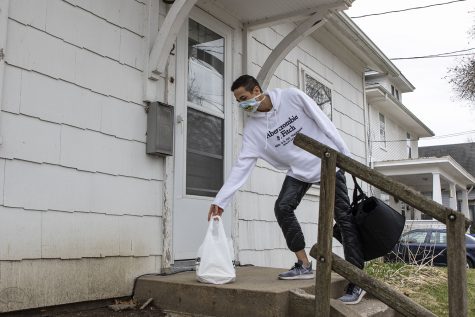
Jonathan Jackson leaves food on the doorstep during a shift for Chomp on Thursday, March, 26, 2020. Jackson has delivered for Chomp for the past two years and reports seeing a spike in orders since COVID-19. Jackson has been leaving food on doorsteps, frequently wears a mask and sanitizes his hands.
Kent and Epstein agreed communication with Chomp has been good through this transition, and Jackson noted that communication between restaurants and Chomp is important to keep things running smoothly.
“They’ve been doing a great job … pretty seamless to the extent that it’s a completely different business model than we’ve been used to for the past 11 years,” Epstein said. “Seems like everybody has kind of adapted.”
While waiting for an order to finish, Jackson scrolled through social media on his phone. The car was quiet, with the only noise coming from the radio, then suddenly he exhaled and read out loud what he saw on his feed: “The U.S. now has the most cases of coronavirus in the world.” As of March 28, there were more than 103,000 cases of COVID-19 in the U.S.
His face, which had been open and cheery all evening, became bleak.
“Cool,” he said. “Way to go, America.”
And he drove on.

(she/her/hers)
Email: [email protected]
Brooklyn Draisey is the Projects Editor at The Daily Iowan. She is a senior studying journalism...

(she/her/hers)
Email: [email protected]
Katie Goodale is the Projects Assistant Visuals Editor at The Daily Iowan. She is a senior at the...



